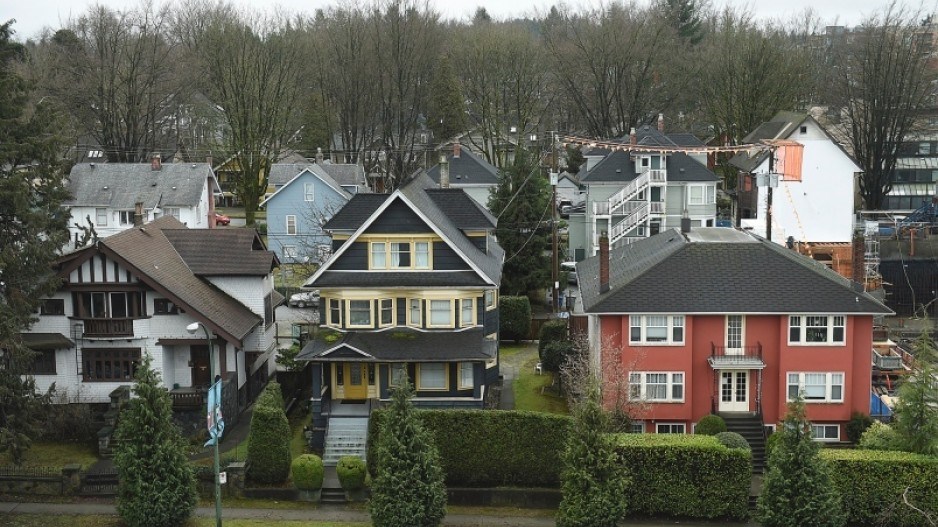The B.C. government is anticipating double-digit declines in B.C. housing starts and property transfer tax revenue, and increased revenue from its foreign buyers’ tax, over the course of the next year.
A projected slowdown across the B.C. housing market is expected to leave the province with $483 million less revenue from its property transfer tax in 2017/18 – a 23.9% drop year-over-year as market activity for the year ahead is forecast to return to 2015/16 levels.
Over the following two years, the province projects revenue to fall an average of 3.9% annually to reach $1.4 billion in 2019/20, compared with the more than $2 billion generated last year.
The anticipated market slowdown tracks, in part, housing starts, which are expected to drop by 28.4% this year, compared to the 33% increase seen in 2016.
“We don’t expect the real estate market to be percolating along at the level it was last year,” said Minister of Finance Michael de Jong.
Certain taxes on real estate however are expected to generate greater revenue over the years to come.
Once the current fiscal year ends, B.C. expects it will have earned $100 million in taxes on residential purchases made by foreign buyers in the Metro Vancouver region.
Total revenue from the province’s foreign buyers’ tax – implemented in August of last year – is expected to hit $150 million annually over the next three years: tax generated by $1 billion in residential properties purchased by foreign buyers annually through to 2019/20.
According to Minister de Jong, where foreign activity in Metro Vancouver’s residential real estate once constituted 15-17% of market activity, levels have dropped to between 3-5%, a sign the tax has had the “desired impact.”
B.C. also expects to see property taxes grow by an average of 4.6% per year over the next three years, bringing in an additional $593 million in taxes by 2019/20 over the current fiscal year’s estimates.
To address housing affordability, the B.C. government announced in its budget for 2017 that it will be increasing the threshold of the province’s first-time homebuyer’s program to $500,000 from $475,000, a move it estimates will save first-time buyers up to $8,000 in property transfer taxes.
Budget 2017 also provides an additional $159 million to maintain assistance levels for low-income families and seniors requiring support with their private rental payments.
For the year ahead, the province will continue to administer its $700-million BC HOME Partnership program, which offers up to $37,500 in five-year, interest-free loans to first-time homebuyers seeking financial assistance. Government will also continue administrating its previously announced $920 million in funding dedicated creating additional affordable housing supply.
Continuing to explore partnership opportunities with municipal governments to better address housing capacity, and to enhance the processing, approval and permitting of housing development applications, are also a priority for the coming year.




